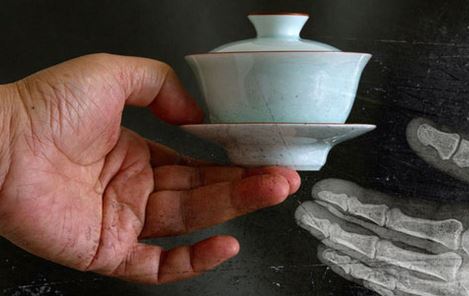Tea and its impact on bone health | |

| |
When it comes to maintaining optimal bone health, we often think of factors such as calcium intake, exercise, and vitamin D. However, emerging research suggests that tea, a beverage enjoyed by millions around the world, may also play a role in supporting bone health. In this article, we will explore the relationship between tea and bone health, uncovering the potential benefits that tea consumption may offer in promoting strong and healthy bones. Understanding Bone Health: The Foundation of Our BodyBefore we delve into the impact of tea on bone health, let's first understand the importance of maintaining strong and healthy bones. Our bones serve as the structural framework of our bodies, providing support, protection, and mobility. Proper bone health is crucial at all stages of life, as it helps reduce the risk of fractures, supports overall mobility, and contributes to a high quality of life. The Potential of Tea: Nourishing Bones From Within1. Nutrient Content: A Natural Source of Bone-Friendly CompoundsCertain types of tea, such as green tea, black tea, and oolong tea, contain a range of nutrients that may benefit bone health. These include antioxidants, polyphenols, flavonoids, and trace minerals like manganese and fluoride. These compounds have been linked to potential positive effects on bone density and strength. 2. Antioxidant Activity: Protecting Bones From Oxidative StressTea is known for its high antioxidant content, which helps combat oxidative stress in the body. Oxidative stress can contribute to the breakdown of bone tissue and impair bone health. The antioxidants found in tea, such as catechins and epigallocatechin gallate (EGCG), can help neutralize harmful free radicals, reducing oxidative stress and potentially preserving bone health. 3. Anti-Inflammatory Properties: Reducing Inflammation and Bone LossChronic inflammation is associated with various health conditions, including bone loss and osteoporosis. Tea, particularly green tea, contains anti-inflammatory compounds that can help reduce inflammation in the body. By reducing inflammation, tea consumption may contribute to maintaining bone density and minimizing the risk of bone-related issues. 4. Hydration and Bone Health: Supporting Overall Bone FunctionProper hydration is vital for overall health, including bone health. Tea, when consumed without added sugars or excessive additives, contributes to hydration. Staying hydrated supports the delivery of essential nutrients to bones and aids in maintaining their strength and density. Choosing unsweetened tea options and incorporating them into a well-balanced diet can provide hydration benefits alongside potential bone-supporting properties. Frequently Asked Questions (FAQs)FAQ 1: Can any type of tea benefit bone health?Various types of tea, including green tea, black tea, and oolong tea, may offer potential benefits for bone health. However, the research in this area is still evolving, and more studies are needed to fully understand the specific effects of different teas on bone health. Nonetheless, incorporating tea as part of a balanced lifestyle can contribute to overall well-being. FAQ 2: How much tea should I consume to support bone health?There is no specific recommended dosage of tea for bone health. However, moderate and regular consumption of tea, such as two to three cups per day, may provide potential benefits. It's important to remember that tea should be enjoyed as part of a well-rounded diet and lifestyle that includes other bone-supporting factors, such as a calcium-rich diet and weight-bearing exercises. FAQ 3: Can tea replace other measures for maintaining bone health?While tea can potentially support bone health, it is not a substitute for other essential measures. Adequate calcium intake, regular exercise, and vitamin D levels are crucial for maintaining strong and healthy bones. Tea can complement these efforts by providing additional nutrients and potential protective properties. FAQ 4: Are there any side effects or considerations when consuming tea for bone health?In general, tea is safe for consumption when enjoyed in moderation. However, some teas may contain caffeine, which can affect certain individuals differently. It's important to be mindful of caffeine intake if you have any sensitivity or health conditions. Additionally, if you have specific concerns about bone health or are taking medications, it is recommended to consult with a healthcare professional for personalized advice. FAQ 5: Can children benefit from tea's potential impact on bone health?Tea consumption in children should be approached with caution due to their developing bodies and potential sensitivity to caffeine. It's advisable to consult with a pediatrician or healthcare professional to determine if tea consumption is suitable for children and to ensure it aligns with their specific health needs. ConclusionTea, a delightful and versatile beverage, may offer more than just a comforting experience. With its potential benefits for bone health, tea consumption can complement other measures aimed at maintaining strong and healthy bones. The nutrient content, antioxidant activity, anti-inflammatory properties, and hydration benefits found in tea contribute to its potential impact on bone health. By incorporating tea into a well-balanced lifestyle, you can nurture your bones from within and promote long-term skeletal wellness. | |
| Views: 220 | | |
| Total comments: 0 | |